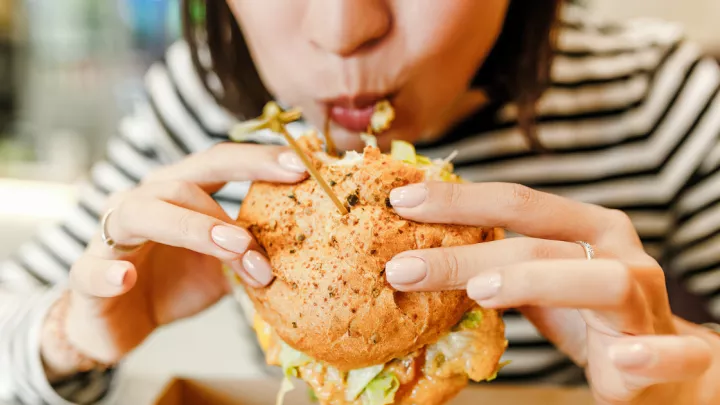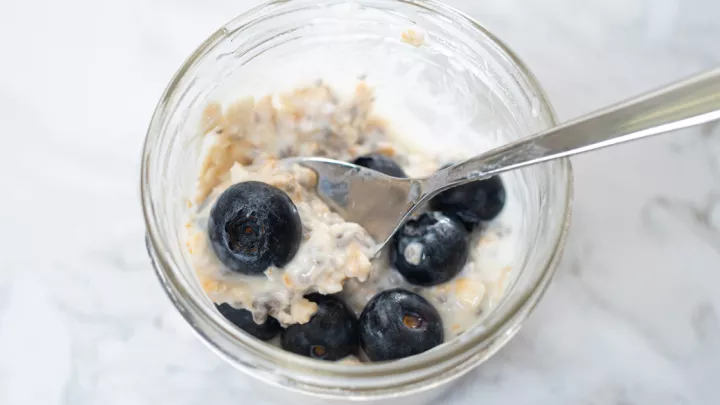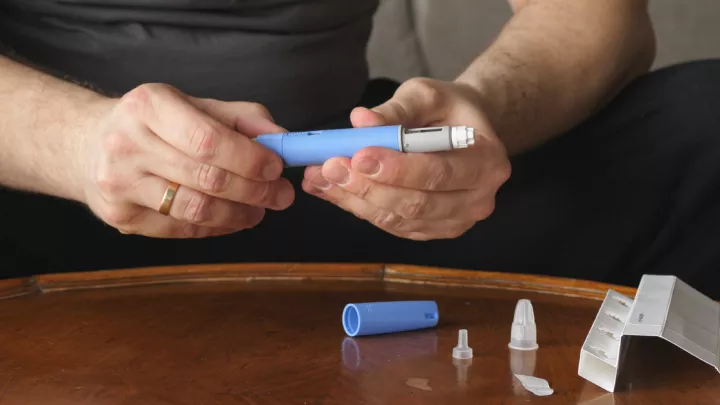Feeding the friendly flora: Researchers test effects of prebiotic on gut microbiome

A new clinical trial is testing a certain prebiotic’s effect on shifting the composition and function of the gut microbiome in a beneficial way.
Researchers aim to produce a treatment that will work alongside conventional therapies to enhance gut barrier function and reduce inflammation to prevent the recurrence of inflammatory bowel disease, or IBD.
“I think it’s going to be an incredibly important addition to make the medications we use now more effective and potentially impact the recurrence of disease,” says Peter Mannon, MD, MPH, gastroenterologist and principal investigator.
The AXOS Prebiotic Study on IBD is currently enrolling patients with IBD and healthy controls to participate in a four-week trial that is offered on an ongoing basis over the next two years.
What are prebiotics?
Prebiotics are compounds found primarily in plant-based foods that nourish the good bacteria in our gut. These compounds, known as fiber or starch, feed the friendly flora, producing short-chain fatty acids, or SCFA.
Dr. Mannon explains that SCFAs play an important role in maintaining gut health. “They are very useful for the epithelial lining of the gut for energy,” he says. “They seem to enhance the barrier function, so your gut is not as leaky. They also have their own receptors on cells, and they signal in a way that seems to induce anti-inflammatory signals.”
Because IBD involves inflammation of the tissues in the digestive tract, reducing inflammatory triggers could help prevent recurrent disease. Previous trials on animals and some humans show this prebiotic may also shift the microbiome, allowing beneficial bacteria to grow and dominate other organisms.
How will the trial work?
The prebiotic being studied is a corn bran derivative that, for the purposes of this trial, is dissolved overnight in fat-free, lactose-free milk until it reaches a pudding-like consistency.
Dr. Mannon has created several recipes that participants can customize to their taste and enjoy each day, including salted caramel, banana chocolate and apple crumble with graham crackers.
“You let it sit in the refrigerator with your mix-ins, and by the morning, it’s nice and thick,” he says. “You don’t have to eat it all at once – you can just eat it throughout the day.”
To allow researchers to monitor changes to the gut microbiome, participants will answer questionnaires, collect stool samples and have their blood drawn for labs that measure gut barrier function and inflammatory response.
A proud partnership
Dr. Mannon is the director of the Frederick F. Paustian Inflammatory Bowel Disease Center, which is collaborating on the trial with the Nebraska Food for Health Center at University of Nebraska-Lincoln.
“We’re very proud to have this Nebraska-based partnership that we can leverage,” Dr. Mannon says. “We have the clinical infrastructure here and our medical expertise, and they have a research infrastructure and their scientific expertise. It’s been perfect timing to do trials like these because people are becoming more aware of the effects of prebiotics.”







